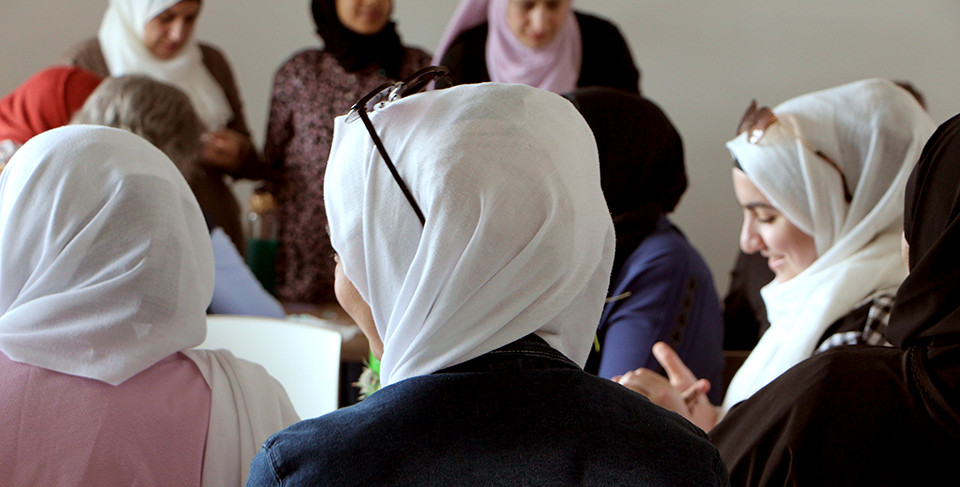Imagining a trauma-informed community
In a guest blog, Denise Bradley of Corrymeela explains why we need a social movement to bring about a paradigm change
Over recent years, practicing in the midst of traumatic pain and suffering on the margins of Northern Ireland’s society, I have seen a sharp rise in awareness of the psychological trauma which is prevalent within our changing landscape - often for good and legitimate reasons.
However, the practice and the action critical to becoming ‘trauma-informed’ risks reduction to a buzzword, one which is overused and misunderstood, risking further harm and wounding.
Trauma-informed communities advocate for the inherent rights of safety, belonging and dignity for all humanity, creating and advocating for spaces where pain and suffering is not medicalised, socially prescribed, check-listed or silenced. Each person’s story, regardless of their status, ethnicity, gender, sexual orientation or background is responded to and supported towards the advancement of a more humane, and equitable world.
Psychological trauma is the brutal forcing apart of the ‘psyche’ and the ‘soma’, creating deep tears to the nervous system, locking unprocessed emotional and psychological pain into the body. It becomes unsafe to be present in our physical body, disconnecting us from ourselves and from others. The complexity of these wounds requires a collective and holistic rights-based approach towards healing and recovery. Survivors of trauma need understanding and meaning for their pain; survivors of trauma require justice for their suffering.
Disconcertingly, here in Northern Ireland, the critical rights-based component of a trauma-informed approach has been diluted, seemingly lost in translation somewhere along the way.
Within these systemic and politically free domains and vacuums, power structures are enabled to continue to oppress and discriminate without accountability.
Our existing structures do not allow for human trauma and suffering. Western culture continues to put people into neatly categorised boxes, reducing complex issues and services which are interconnected and interpersonal, into binary and bureaucratic systems. Within these systemic and politically free domains and vacuums, power structures are enabled to continue to oppress and discriminate without accountability.
Over two decades ago, the mother of trauma-informed approaches, psychiatrist Sandra Bloom, predicted the current ‘social strain, and unrest manifesting all around us would no longer be ‘held’ by existing paradigmatic structures and systems.’ Bloom, and other academics, clinicians, social workers and activists had had direct experience of personal and historical traumas, offering a compassionate insight into the root causes of their patients’ fragmented mental health and traumatic suffering.
This resulted in the field of ‘Traumatology’, the science of human suffering, being born. The discipline no longer pathologised traumatised people as ‘sick, mad or bad,’ to be systemically detained, imprisoned, treated or cured. Trauma-informed practitioners were instead asking ‘What is happening for you, and what is happening within you?’ There was a shift away from relying solely on traditional biomedical models which seek to ‘treat’ human suffering, towards strategies that considered the contextual and intersectional impact of collective experiences of trauma. Their work places meaningful emphasis on bringing visibility to the human rights violations and harms contributing to the suffering.
A message which had historically been suppressed has now re-emerged: Trauma and human rights violations are inextricably linked, requiring a political and social movement to bring change. To be trauma-informed means to speak truth to power as a catalyst for the collective healing of communities, including the marginalised and oppressed. It is for our children and their children, and into the fourth generation and beyond.
Northern Ireland requires continued social and political movements to bring paradigmatic trauma informed change. Can you imagine a trauma-informed community?
References:
Bloom S. L Creating Sanctuary, Towards the Evolution of Sane Societies (Routledge 1997)
Herman J.L, Trauma and Recovery: The aftermath of violence-from domestic violence to political terror (Basic Books 1995).